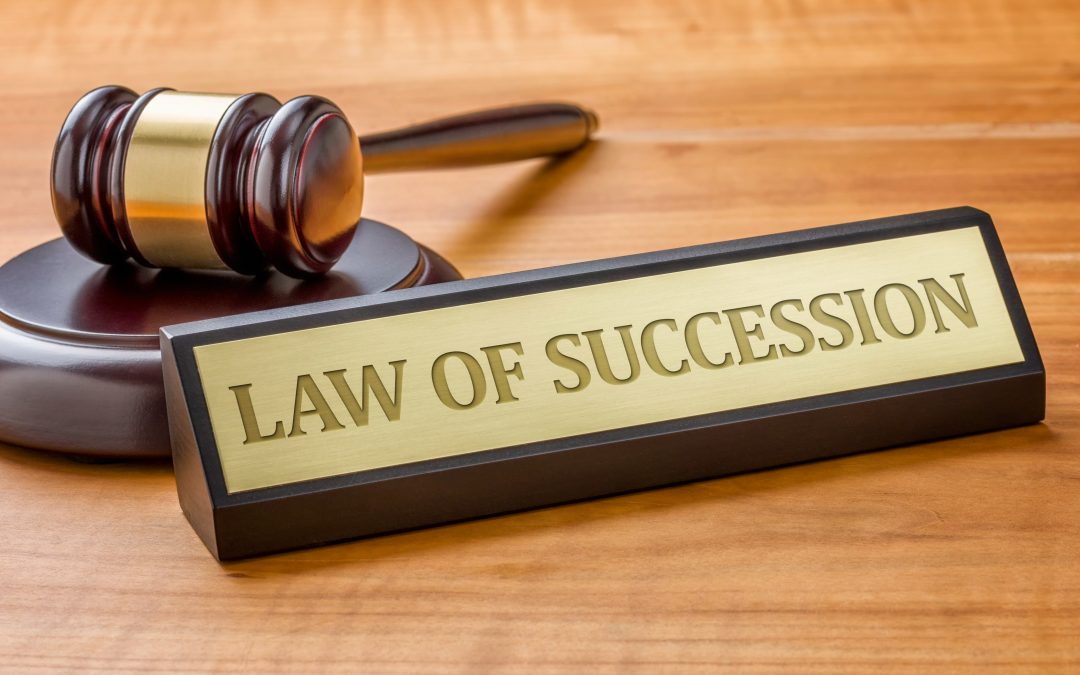
by Katrina Brown | May 22, 2020 | Elder Law and Special Needs Advocacy – “Different-Ability Law”, Estate Administration and Litigation, Succession Law, Wills
Is the Executor paid for acting in a deceased estate?
The duties and responsibilities of acting as the Executor of a deceased Estate can be onerous and time consuming; therefore, if appointing a person to act on your behalf, you should consider whether any provision should be made for such person to compensate them for taking on the role.
Under the Succession Act 1981 (Qld) (the Act), a person acting as the Executor of the Estate is entitled to receive a just and reasonable commission for their attendances in acting as the Executor of your Estate, provided such commission is authorised by the Will, authorised by the Court (in accordance with section 68 of the Act ) or agreed by all beneficiaries of the Estate. In the event such payment is authorised, it would be paid from the assets of the Estate prior to distribution.
However, depending on the value of the Estate, this is something that you may wish to specifically address in your Will; whether to authorise or prohibit such payment, or to make alternative provision.
For example, as a commission payment is generally paid as a percentage of the net value of the Estate, if the value of your Estate is significant, the payment of an Executor’s commission can be a large sum and may significantly reduce the value of your Estate (and, in the event your Executor is also a beneficiary of your Estate, could result in a disproportionate distribution to beneficiaries). This may be considered particularly unreasonable if the attendances by the Executor in administering the Estate have been minimal in comparison to the amount of compensation received by way of commission.
In order to avoid the payment of a percentage of your Estate as commission, or payment of a disproportionate sum, it is also possible to include a clause in your Will directing that your Executor is authorised to be paid for their attendances in administering your Estate at an hourly rate (set by you – such at a specified hourly rate, or a rate equivalent payable to bookkeepers in your local area at the date of your death).
If you wish to review your Will to ensure your Executor is appropriately remunerated for acting in the administration of your Estate, please contact our team on 07 5574 3560 or via email to info@nautiluslaw.com.au.

by Katrina Brown | May 11, 2020 | Powers of Attorney and Estate Planning, Succession Law, Wills
Talk about unfair…or was it?
In the matter of Calvin & McTier [2017] FamCAFC 125 (12 July 2017), the Full Court heard an appeal by a husband who argued that an inheritance received FOUR years after separation should not be included in the property to be divided. The Full Court held that the property to be divided in a matrimonial matter is the property held by the parties at the date of HEARING, not date of SEPARATION.
The husband’s counsel submitted a number of legal arguments to defeat the inclusion of the inheritance, including the proposition that if the inheritance was to be counted – the later acquired inheritance should be subject to a separate finding as to division (in that case, the inheritance equated 32% of the property pool, which the trial court awarded 65% to husband, and 35% to wife). The Full Court did not agree. The Full Court determined that a trial court has discretion to make decisions as to the whole of the assets of the parties, including assets acquired long after separation. To make matters worse, the husband was left to pay the parties’ costs.
The lesson here is that if your beneficiaries are separated, but have not resolved matters by a binding financial agreement or court orders (far preferred because of the finality), then you should be revisiting your estate planning and contemplating proper testamentary trust structures with adequate appointor and guardian provisions.
Also, if you have separated, but believe the cost of making a binding financial agreement and/or seeking court orders is “too hard” or “not worth the expense”, think again. It is far better to divide what is your marital pool, than risk dividing what is your later accumulated wealth. Whilst adjustments and contribution weighting may allow for a factor which compensates for your later accumulated wealth, you most likely will lose part of that accumulated wealth.
Life is a gamble, sometimes you win the gamble.
If you aren’t up for the gamble, we welcome you to contact one of the estate planning and/or family lawyers at Nautilus Law Group. Please free to contact Katrina Brown on (07) 5574 3560 or by email.
by Katrina Brown | Jan 16, 2017 | Powers of Attorney and Estate Planning, Succession Law, Wills
You drafted a Will years ago – it’s pretty basic, but it gives everything to your spouse, or, if your spouse doesn’t survive, then everything goes to your children. So, if the content of the Will applies, what is the point of doing a new Will that sets out the same wishes?
Many people see the updating of a Will as an unnecessary and costly exercise, particularly when the new Will contains the same directions as the prior Will.
Although we certainly understand the frustration with the process, there are three important reasons to ensure your Will is reviewed and updated regularly.
Firstly – a regular review of your Will is critical
There have been recent cases in Queensland that indicate that if a challenge is made against the Estate of a deceased person, and the Estate is being administered by a Will that was not recently made or reviewed, the Courts often question whether the wishes of the deceased at their date of death were the same as those contained in the Will.
There is good reason for this. We regularly hear “I’ve been meaning to update my Will for months now, especially since this happened” – life is busy, and updating a Will falls a long way down the to-do list for most people.
However, it is important to make time for the review process – attending on your solicitor to review the Will, make any alterations, or confirm your wishes can clarify your intentions for the administration of your Estate and potentially prevent an Estate challenge. There is no defined review period, however we recommend reviewing your documents with your solicitor at least every three years.
Secondly – legislation and case law changes regularly – your documents need to change with it
Legislation and Case Law in each State is constantly evolving, meaning that the way your Will is interpreted or effected may change over time.
It is important to review, and confirm or vary, your Estate planning documents with your solicitor regularly to ensure that there are no material changes to your Estate plan that result from changes in law.
Finally – has your Will been voided or revoked?
While a regular review of your Estate planning documents is important, there are certain circumstances which will void your Will – therefore, review is critical should any such occasion occur.
Marriage, for example, will revoke a Will. Unless your Will is made in contemplation of your marriage to your partner, the act of marrying will invalidate the Will.
Similarly, divorce or annulment will also revoke your Will (unless a contrary intention is specifically indicated).
It is also important to review your Will as the circumstances of yourself, your executors or your beneficiaries change – if you, your executors or your beneficiaries become subject to bankruptcy or family law proceedings, it is important to review your Estate plan to ensure that it is still appropriate and, where necessary, that appropriate protective measures are set in place.
If you need to review your Estate plan, we welcome you to contact our Estate Planning Team on 07 5574 3560 or via email.
by Katrina Brown | Mar 28, 2016 | Estate Administration and Litigation, Powers of Attorney and Estate Planning, Succession Law, Wills
It is a common phrase heard, particularly from young adults – “I don’t have any assets, so I don’t need a Will”.
Young adults and non-homeowners are often of the opinion that, because they do not have “significant” assets – they do not need a Will. This article considers two of the most basic reasons to have a Will.
Firstly, everyone owns something – and the majority of young people have potentially significant superannuation death benefits.
Remember opening a “Dollarmites Club” account with Commonwealth Bank when you were in early primary school (or opening one for your children)? At a young age you started to accumulate assets.
In addition to many young adults concluding that their assets are not significant enough to necessitate a Will, there is generally one asset that they do not consider – superannuation death benefit proceeds.
Superannuation is held by the Trustee of your superannuation fund(s) on your behalf. Although you are beneficially entitled to the funds, they are not owned by you (but rather held for you). Therefore, the Trustee can pay the superannuation death benefits as the Trustee determines – which may or may not be in keeping with your wishes.
If you die having a superannuation member interest, the Trustee is obligated to pay the death benefit to any one or more of your “dependents” or your legal personal representative – unless you have made a Binding Death Benefit Nomination (and the Nomination names a lawful payment direction).
You may have significant superannuation death benefits, and have no idea! We discover this quite often, when we ask clients to provide copies of their superannuation statements.
For example, one standard cover by Sunsuper provides a combined total and disability cover for a 30 year old in the sum of $250,000, which decreases at age 60 to $25,000. Also, many industry funds have basic insurance coverage that is taken out on joining the superannuation fund.
In a Will, directions can be made in respect to your wishes on the payment of the superannuation death benefits. The Trustee may have regard to your wishes contained in your Will, but is not bound to act in accordance with your Will. However, your Will is an excellent starting point for the Trustee to consider, in assessing how the superannuation death benefits should be paid. Of course, making and maintaining a valid Binding Death Benefit Nomination in the form required of the Trustee is the best approach to ensuring the benefits are paid to the correct beneficiary.
You do need to be aware, however, that the Trustee is limited to who it can pay – including generally your parents, your children, your partner or spouse and your dependents and interdependents (in general terms – people whom you live with or whom rely on you for some level of financial assistance, or vice versa). Excepting in respect to any one or more of these, the Trustee must pay the death benefit to the Legal Personal Representative of your Estate.
Assuming the death benefits are paid to the Legal Personal Representative of your Estate, if you have no Will – the superannuation death benefit will be distributed in accordance with the intestacy rules set out in your state of residency’s intestacy rules (see, for example, the Succession Act 1981 (Qld)). But, you may not want to leave your death benefit to those who would take intestate, so it pays to draw a Will – regardless of the value you believe your Estate to be worth.
Secondly, if you do not have a Will, there is a question over who controls your Estate.
A properly drawn Will appoints an executor, which person (or people) has the authority to administer your Estate.
In the event that you die without a Will, the only way that a person can be granted authority to deal with your estate (in a way that is recognised by financial institutions and asset holders) is for that person to obtain a grant of Letters of Administration from the Supreme Court.
The cost and time involved in obtaining the grant of Letters of Administration is generally greater than that of obtaining Probate of a Will.
If you would like to speak to our estate planning team about drawing a Will, please contact our office on 07 5574 3560 or via email.
by Katrina Brown | Mar 21, 2016 | Succession Law, Tax Advisory, Wills
We often encounter the misconception that when you die, a set percentage of your estate is paid as a “death tax”.
The good news is that “death tax” was abolished in Australia more than 40 years ago.
There are, nonetheless, taxes and charges borne by the executor or administrator of deceased estates, notwithstanding that the “death tax” was abolished. This article considers a number of such examples.
COURT FEES: If the estate obtains a grant of probate, the government imposes registration fees according to Court rates.
ESTATE INCOME TAX: Tax may be payable on certain income or capital transactions which occur as a consequence of a person’s death. Whilst “death” is not a taxable event, the disposal of assets by the estate and the receiving of income during the administration of the estate, gives rise to potential tax assessable circumstances. The tax may be borne by the beneficiaries who become “specifically entitled” to the benefit of the income arising, or the tax may be held by the executor and payable from the estate proceeds.
ADJUSTMENTS FOR SOLE PROPRIETORS: If an estate has a business, and stock or depreciation calculations must be adjusted at death as a consequence of the deceased trading as a sole proprietor or partner, then there may be a “tax” which arises to the extent of the adjusted values.
SUPERANNUATION DEATH BENEFITS PAID TO NON-TAX DEPENDANTS: If superannuation death benefits are paid to non-tax dependants, then a tax case arise in respect to the taxable elements. The theory here is that the concessional tax treatment attaches to the member of the superannuation fund, and not to his/her estate beneficiaries.
CAPITAL GAINS GENERALLY: The taxation of capital gains in a deceased estate is complicated, but it can generally be said that if an asset with a capital gain passes to a beneficiary, the tax on the disposal (whenever that may be) by the beneficiary is borne by the beneficiary. In other words, there is no tax on the capital gain on the distribution of the capital asset to the beneficiary. However, when the beneficiary disposes of the capital asset, the capital gains will then become assessable income to the beneficiary. If the capital asset was acquired by the deceased prior to 20 September 1985, the beneficiary will be assessed on the capital gain between the date of death and the disposal by the beneficiary. If the capital asset was acquired by the deceased after 20 September 1985, and the asset was not a main residence (or a residence qualifying for exceptional treatment), then the beneficiary will be assessed on the capital gain between the cost base of the deceased (the purchase price, plus other allowed costs which have been expended since purchase to maintain and hold the asset) and the proceeds of sale received by the beneficiary. There are tax concessions and exemptions which apply in limited circumstances, depending on the nature and use of the asset; however, “death” is not the triggering event for the tax on such capital assets.
SUMMARY: Whilst there is no “death tax” per se, executors and beneficiaries alike are well advised to seek the advice of a tax lawyer or accountant well versed in taxation of deceased estates. There are appropriate strategies to ensure beneficiaries are not subject to excessive taxation.
We welcome you to contact our Estate Planning Team, on 07 5574 3560 or via email to discuss your questions in respect to probate, estate administration and taxation of deceased estates.
by Katrina Brown | Mar 14, 2016 | Estate Administration and Litigation, Succession Law, Wills
When we meet with clients, we often ask why they have decided to come to see us – often they are looking to clearly define an estate distribution for blended families to make sure that everyone is provided for – other times our client is simply looking to put in place a Will that establishes a level of protection for their beneficiaries’ inheritance. For those who haven’t been through an estate planning exercise before, we often hear that “I want to make my Will because I don’t want everything to go to the government”.
“The government” is a broad term, and the assumption we generally encounter is that, if a person hasn’t left a Will naming a beneficiary of their estate, the residue of the estate (being the balance after the payment of funeral costs, debts and testamentary expenses) will simply be distributed to the government, without consideration of the deceased’s family.
In reality, this is not the case. While there are circumstances under which “the government” can receive payments under a Will, these are generally limited to estate debts and taxes – such as capital gains tax and income tax for gains realised and income received by the deceased during their lifetime and in the course of administering their estate. Aside from this, there are very limited circumstances in which the government will become the beneficiary of your estate.
A person who dies without a Will, or who leaves a Will which does not effectively dispose of their estate, is said to die “intestate”. The Succession Act 1981 (Qld), at Part 3, provides the direction for the distribution of an estate of an intestate person. The rules of intestacy consider the persons relationship to the deceased, and the deceased’s relationship circumstances at their date of death.
For example, as set out at Schedule 2 of the Succession Act, if a married person dies leaving two children, the spouse of the deceased is entitled to receive $150,000 plus the household chattels, with the balance of the estate divided with 1/3 distributed to the spouse and 2/3 distributed equally to the children of the deceased.
If a single person with no children dies, but is survived by one or both of their parents, the parents (or the survivor of them) are entitled to the entire rest and residue of the estate in equal shares.
Only in the circumstance where the deceased is not survived by a spouse, child, parent, brother, sister, grandparent, aunt, uncle, niece, nephew or cousin (defined as next of kin at section 35), does the government become entitled to the residue of the estate.
Whilst the rules of intestacy set out in the Succession Act may allay the concern that the government will take the residue of your estate upon your death, this is not to say that you do not need to make a Will.
Intestacy can create a much more complex estate administration process than administration with a Will. Administration of an estate pursuant to a Will often requires the executor to obtain a grant of Probate; if the Will has been correctly prepared and executed, this application is generally a straightforward process wherein the executors advertise and make application for the grant from the Court. The requirement for the issue of a grant of probate will sometimes be waived by financial institutions and other asset holders, if the value of the asset held by them is a low value asset and therefore the expense and delay of obtaining probate is not justified.
However, in the case of intestacy, letters of administration from the Court must be obtained – otherwise, asset holders are unable to ascertain that the person that they are dealing with has the proper authority to administer the estate. As this process must be completed, and there are various addition documents that must be prepared and executed, the application for letters of administration can be a costly and time consuming exercise.
Whilst the myth that the government will receive your estate if you don’t have a Will on your death is false, that is not to say that you don’t need a Will. A properly drafted Will is the best method of ensuring your estate is administered in accordance with your wishes, that costs are minimised and that beneficiaries receive the gift you intend.
If you have any questions regarding making a Will, or the distribution of an estate where a Will has not been left, please contact Caitlin Bampton on 07 5574 3560 or Caitlin@nautiluslaw.com.au.







